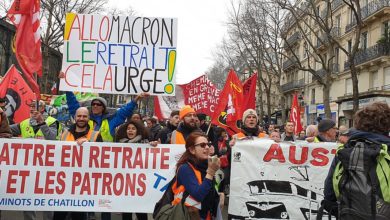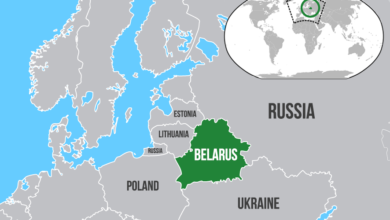Across Europe, workers have raised their level of struggle in response to the worldwide capitalist economic crisis.
|
Over 120,000 hit the streets Feb. 21 in Ireland in response to the government’s handling of the economic crisis. A general strike to stop job cuts is being organized for Mar. 30.
In February, thousands in Italy protested the government’s handling of the economic crisis. Last month public sector workers in Germany went on strike to fight for an 8 percent wage increase. Greek farmers were set to protest the European Union’s Common Agricultural Policy by attempting to drive their tractors through Athens to the Agriculture Ministry.
Workers in Eastern Europe have been particularly hard hit by the economic crisis. This is a direct result of heightened imperialist exploitation, plunder of the former socialist countries, and austerity programs forced on many eastern European countries as a condition for receiving badly needed economic aid. Those programs invariably include reductions in social spending and reductions in wages and benefits for workers.
In spite of the grim economic situation, there is evidence that protests have had positive results. The ruling class is finding it increasingly difficult to ignore working-class demands, and as a result is being forced to make concessions. Just to take one example, Sarkozy has been forced to rethink his right-wing agenda: He shelved a contested high school reform plan after students staged street protests and is toning down his attacks on the country’s 35-hour workweek
European workers, pushed by dire economic conditions, are raising the level of militant struggle. Workers in the United States should follow the example of our sisters and brothers in Europe and take to the streets against the capitalist offensive against our living standards. On March 21, we will march on the Pentagon and elsewhere around the country to demand: From Iraq to Afghanistan to Palestine, occupation is a crime! Jobs and education, not wars and occupation!
To find out more about the March 21 mobilization, click here.







